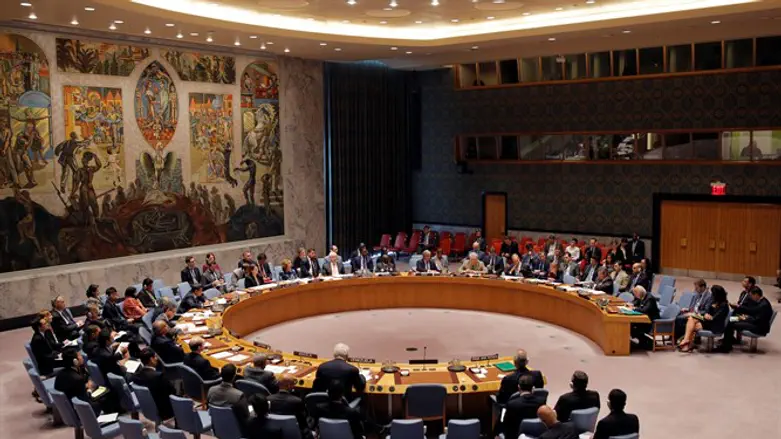
The UN Security Council on Monday unanimously imposed new sanctions on North Korea, AFP reports.
The new sanctions ban textile exports and restrict shipments of oil products and come in response to Pyongyang’s sixth and largest nuclear test.
With backing from China and Russia, the council voted 15-0 to back the U.S.-drafted sanctions resolution just one month after banning exports of coal, lead and seafood in response to North Korea's launch of an intercontinental ballistic missile (ICBM).
The United States had dropped its initial demands for a full oil embargo and a freeze on the foreign assets of North Korean leader Kim Jong-Un in a bid to win support for the resolution from China and Russia.
The resolution bans textile exports, cuts off natural gas shipments to North Korea, places a ceiling on deliveries of refined oil products and caps crude oil shipments at their current level, noted AFP.
It bars countries from issuing new work permits to North Korean laborers sent abroad and seeks to phase out the practice by asking countries to report on the date for ending existing contracts.
Some 93,000 North Koreans work abroad, providing Kim's regime with a source of revenue to develop its missile and nuclear programs, according to a U.S. official familiar with the negotiations.
Under the measure, countries are authorized to inspect ships suspected of carrying banned North Korean cargo but must first seek the consent of the flag-state.
An initial draft authorized the use of force to board those vessels, but that was dropped in negotiations over the weekend.
The measure is the eighth series of sanctions imposed on North Korea since it first tested a nuclear device in 2006.
On Sunday, North Korea threatened it would inflict "the greatest pain and suffering" on the United States if Washington persists in pushing for harsher UN sanctions on the isolated country.
Last week’s test followed threats by Pyongyang to attack Guam, a tiny U.S. territory in the Pacific.
Those threats came in response to President Donald Trump’s warning that Pyongyang faced "fire and fury like the world has never seen" if it continued to threaten the United States with its missile and nuclear programs.
Following last week’s test, North Korea warned it would send “more gift packages” to the U.S. if it continues to pressure Pyongyang.
Monday’s resolution limits deliveries of refined oil products to 500,000 barrels for three months from October 1 and to two million barrels from January 1 for a period of 12 months.
That would amount to a 10 percent cut in oil products, according to the U.S. Energy Information Administration (EIA), which estimates annual exports to North Korea at nearly 2.2 million barrels.
North Korea imports mostly gasoline and diesel fuel from China vital to the country's agriculture, transportation and military sectors, according to the EIA.
To further address Russian and Chinese concerns, the resolution expressed support for dialogue and highlights the need to "ensure lasting stability in northeast Asia" and "to resolve the situation through peaceful, diplomatic and political means."
